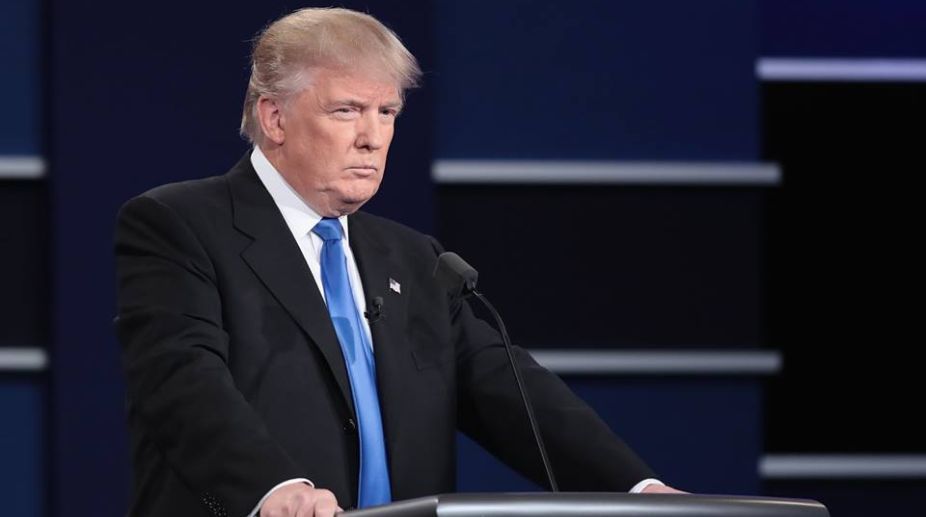More nuclear warheads being kept operational, says watchdog
Nuclear weapons states are strengthening their nuclear arsenals in the face of numerous conflicts worldwide, a leading Swedish think tank on conflict and defence said on Monday.

Donald Trump (Photo: Facebook)
After the coming of the Trump Administration, all eyes are set on the New Nuclear Posture Review (NPR) of the US. The nuclear posture of the US is important as it could have an impact on nuclear weapons policy and doctrine globally. It could either encourage or discourage the policy of nuclear non-proliferation across the globe. In short, the US NPR has the capability to set the trend for the global nuclear order.
While a whole lot of issues are discussed in the US including the command, control and custody of nuclear weapons, there has been no mention of the need to introduce a No First Use Policy (NFU) by the US. The previous NPR which was released in 2010 also kept quiet on the issue despite the fact that President Obama stood for ‘Global Zero’. The issue of NFU becomes more important particularly while dealing with states like North Korea. If the US wishes to avoid a direct confrontation with North Korea, it should have more voices in support of introducing a NFU policy.
It is important here to understand what the NFU policy is, why it is important and why it is practically difficult for the US to include this in its doctrine? NFU means that a state will use nuclear weapons only in case of a nuclear attack by an adversary. NFU is often linked to the aim of achieving of disarmament, although the link is not very direct. The state adopting NFU shows that it does not have a ‘war-like’ mentality and keeps nuclear weapons for defensive purposes only.
The adoption of NFU also decreases the value which a state accords to nuclear weapons in its weaponry system. It shows that the state does not depend on nuclear weapons for dealing with its conflicts; there are other ways to deal with the adversary. Thus devaluing nuclear weapons makes ‘denuclearisation’ a possibility. The adoption of a First Use policy instead shows that the US still depends on nuclear weapons and values them as an ‘important aspect’ in a crisis. This promotes other states also to have nuclear weapons, thus encouraging proliferation.
Advertisement
Various other research studies show that the American first-use option and keeping its weapons on prompt launch mode plays a large role in forcing Russia and China to field a sizable amount of their nuclear forces in a launch-under-attack mode so as to avoid any kind of disarming nuclear strike. This factor increases the chances of a miscalculation by the US’ adversaries in a crisis. The adoption of NFU will probably lower such miscalculation. There are various arguments given to show that why the US needs to adopt the NFU policy.
First, it is conventionally superior to almost all other states. It is the only country that is developing smart bombs, conventional smart weapons and has Global Prompt Strike systems. As a result, the US could win any war easily without the use of nuclear weapons. Second, cold war adversaries no longer exist and this makes FU policy obsolete. Third, the US is following NFU policy as a norm as it has not attacked any country after 1945. So there should not be a problem to adopt a NFU policy in principle.
The problem is that no matter how attractive a NFU policy is, it has some practical problems. As is well known, the US has technologically superior conventional weapons which cannot be matched by the conventional weapons arsenal of any other country. If the US declares NFU, its focus will return to upgradation of the technology for conventional weapons. Further, all its adversaries are aware that they cannot deal with the conventional superiority of the US. As a result, they will be attracted towards using nuclear weapons first in a conflict. This can happen particularly when regime survival is at stake, for example North Korea.
So the question is how to solve the dilemma? The answer to this is that the dividing line between conventional and nuclear weapons should be blurred. The NFU policy should combine with the limits on technology of conventional weapons so that other states may not be in hurry to launch a first strike against the US or its allies. The idea of having ‘Global NFU’ policy by all nuclear weapon states will be a welcome step in this direction. Further, any change in policy cannot be brought about overnight. As said by nuclear weapons expert Henry Sokoloski, ‘We should not want to use them first, we should be reluctant to use them first, we should do everything not to use them first, and we should not exclude the possibility of doing so.’
The writer is Associate Fellow, Centre for Land Warfare Studies.
Advertisement